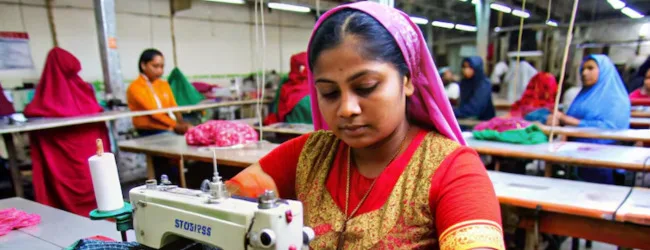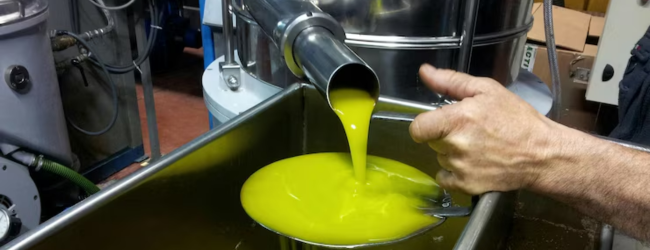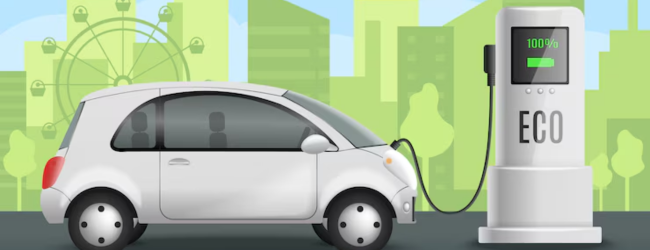Table of contents
- 1. Sustainable Textile & Eco-fashion Startup: Weaving a Greener Future
- 2. Cold Pressed Oil Manufacturing: The Pure Taste of Health
- 3. Home-based Cloud Kitchen: Flavor Without the Fuss
- 4. EV Charging Station & Accessories: Powering the Electric Revolution
- 5. Agri-Tech Services for Farmers: Smart Solutions for the Soil
- 6. Custom Furniture and Woodcrafting: Crafting Unique Spaces
- 7. Organic Farming & Retail: From Farm to Table, Naturally
- 8. Digital Marketing Consultancy for SMEs: Navigating the Online World
- 9. Co-Working Spaces or Startup Incubators: Fostering Innovation Together
- 10. Tourism & Travel Experience Curator: Unveiling Coimbatore’s Hidden Gems
- Conclusion
- Frequently Asked Questions (FAQs)
Coimbatore, the “Manchester of South India,” pulses with a dynamic economic energy, historically rooted in textiles and now branching into exciting new territories. As we look towards 2025, the city presents a fertile ground for aspiring entrepreneurs. Why is Coimbatore buzzing with entrepreneurial energy? Its rich industrial heritage provides a skilled workforce, while a strong sense of community fosters collaboration. The perfect storm of technological advancements, evolving consumer preferences, and unique local opportunities is creating a powerful momentum for small business growth in 2025. Supportive government policies, like the TN Startup & Innovation Policy, further fuel this ecosystem. Let’s explore ten trending small business ideas poised for success in this vibrant city.
1. Sustainable Textile & Eco-fashion Startup: Weaving a Greener Future

- What it is: Creating and selling clothing, accessories, and home textiles made with environmentally responsible materials and ethical production practices.
- Why it’s trending in Coimbatore: Coimbatore’s established textile industry offers a unique advantage to pivot towards the booming global demand for sustainable fashion.
- Benefits: Positive environmental impact, premium pricing potential, strong brand image, access to niche markets.
- Initial investment: ₹5 lakhs – ₹20 lakhs.
- Target market: Eco-conscious consumers, ethical fashion retailers, online sustainable marketplaces.
- Challenges: Higher raw material costs, complex supply chains, consumer education, competition from “greenwashing.”
- How to overcome: Strategic sourcing, transparency and traceability, effective marketing highlighting benefits, collaboration with sustainable partners.
- Real-World Success Stories: Consider brands like “No Nasties Go Green” (though not exclusively Coimbatore-based, they exemplify sustainable fashion in India).
- The Untapped Potential: Focusing on specific niches like organic cotton baby wear or upcycled denim products.
- Essential First Steps to Get Started: Research sustainable material suppliers in and around Coimbatore, develop a unique design aesthetic.
- Funding Avenues: Impact investors, government grants for sustainable businesses.
- Future Growth Projections: The sustainable fashion market in India is projected to see significant growth in the coming years as consumer awareness increases.
2. Cold Pressed Oil Manufacturing: The Pure Taste of Health

- What it is: Producing and selling nutrient-rich oils extracted without heat or chemicals, preserving their natural goodness.
- Why it’s trending in Coimbatore: Growing health awareness and the availability of locally sourced oilseeds make this a promising venture.
- Benefits: Higher nutritional value, superior taste and aroma, niche market with premium pricing, supports local agriculture.
- Initial investment: ₹10 lakhs – ₹30 lakhs.
- Target market: Health-conscious individuals, gourmet food stores, organic retailers, health-focused restaurants.
- Challenges: Lower yield compared to refined oils, shorter shelf life, quality control, competition from established brands.
- How to overcome: Focus on quality and purity, attractive packaging and branding, direct marketing and education, strategic partnerships with local stores.
- Real-World Success Stories: Look at brands emphasizing traditional extraction methods and local sourcing.
- The Untapped Potential: Specializing in unique regional oilseed varieties or infusing oils with local herbs.
- Essential First Steps to Get Started: Identify reliable local sources for quality oilseeds, research cold-pressing machinery.
- Funding Avenues: Small business loans, agricultural grants.
- Future Growth Projections: The demand for natural and healthy food products, including cold-pressed oils, is steadily rising in India.
3. Home-based Cloud Kitchen: Flavor Without the Fuss

- What it is: A food preparation and delivery business operating from a residential kitchen, without a physical dine-in space. Orders are typically received and managed through online food delivery platforms.
- Why it’s trending in Coimbatore: The widespread adoption of food delivery apps like Swiggy and Zomato has created a massive market for convenient food options. Lower overhead compared to traditional restaurants makes it an attractive model.
- Benefits: Low entry barrier and initial investment, higher profit potential due to reduced overhead, flexibility in menu and operations, wider reach through online platforms.
- Initial investment: ₹2 lakhs – ₹5 lakhs (covers kitchen equipment upgrades, initial raw material inventory, packaging supplies, marketing on delivery platforms, and necessary licenses).
- Target market: Individuals and families ordering food online, office workers seeking convenient lunch options, students and young professionals.
- Challenges: High dependence on delivery platforms and their commission rates, building brand recognition in a crowded online marketplace, maintaining consistent food quality and hygiene standards, and managing efficient delivery logistics.
- How to overcome: Develop a unique and appealing menu, focus on high-quality ingredients and consistent taste, build a strong online presence through attractive food photography and social media, encourage positive customer reviews, and explore direct delivery options for local areas.
- Real-World Success Stories: Many home-based cloud kitchens in India have gained popularity by specializing in niche cuisines or offering unique dishes.
- The Untapped Potential: Focusing on regional Coimbatore cuisine, healthy meal plans, or catering to specific dietary needs (vegan, gluten-free).
- Essential First Steps to Get Started: Identify your culinary niche, research local food delivery platforms and their requirements, obtain necessary food safety licenses, and optimize your kitchen setup for efficient delivery.
- Funding Avenues: Primarily self-funded initially, potential for small business loans as the business grows and demonstrates consistent revenue.
- Future Growth Projections: The online food delivery market in India is projected for continued exponential growth, making cloud kitchens a viable business model.
💡 Pro Tip: If you want to start a Business but have too many doubts, connect with a Business expert from Boss Wallah for guidance – https://bw1.in/1116
4. EV Charging Station & Accessories: Powering the Electric Revolution

- What it is: Establishing charging stations for electric vehicles (EVs) at strategic locations and potentially selling related accessories like charging cables, adapters, and maintenance kits.
- Why it’s trending in Coimbatore: Coimbatore is witnessing a gradual increase in EV adoption, driven by environmental awareness and government incentives. The current charging infrastructure is still developing, creating a significant opportunity.
- Benefits: High growth potential as EV adoption increases, provides an essential service for EV owners, potential for recurring revenue from charging fees, and opportunities for value-added services like EV maintenance.
- Initial investment: ₹15 lakhs – ₹40 lakhs (includes the cost of purchasing and installing charging equipment, land lease or purchase costs, electrical infrastructure upgrades, obtaining necessary permits, and marketing).
- Target market: EV owners (private and commercial), fleet operators transitioning to EVs, businesses and residential complexes looking to offer charging facilities.
- Challenges: High initial investment costs, potentially long return on investment periods, reliance on the growth of the EV market, and the need for reliable electricity infrastructure.
- How to overcome: Strategically select locations with high EV traffic or potential, partner with residential and commercial establishments, explore government subsidies and incentives for EV infrastructure development, and offer competitive pricing and reliable service.
- Real-World Success Stories: Examples of successful EV charging networks are emerging in major Indian cities, indicating the potential in developing regions like Coimbatore.
- The Untapped Potential: Focusing on fast-charging stations, offering mobile charging services, or specializing in charging solutions for specific types of EVs (e.g., electric two-wheelers).
- Essential First Steps to Get Started: Research the EV market in Coimbatore, identify potential locations for charging stations, understand the regulations and permits required, and assess the electricity infrastructure availability.
- Funding Avenues: Bank loans, infrastructure investment funds, and potentially government grants focused on promoting electric mobility.
- Future Growth Projections: With the Indian government’s strong push for EV adoption, the demand for EV charging infrastructure will continue to surge.
5. Agri-Tech Services for Farmers: Smart Solutions for the Soil

- What it is: Providing technology-driven solutions to farmers to improve agricultural practices, such as using IoT sensors for soil monitoring and irrigation management, drones for crop surveillance and spraying, and AI-powered analytics for informed decision-making.
- Why it’s trending in Coimbatore: Modernizing agriculture is crucial for increasing productivity and sustainability. Coimbatore and its surrounding agricultural areas can benefit significantly from these technologies.
- Benefits: Improved efficiency and productivity for farmers, optimized resource utilization (water, fertilizers), better crop management through early detection of issues, and data-driven insights for informed decision-making.
- Initial investment: ₹8 lakhs – ₹25 lakhs (includes the cost of purchasing or leasing technology like drones and sensors, developing software platforms or subscribing to existing ones, hiring skilled personnel, and marketing services).
- Target market: Small and large-scale farmers, agricultural cooperatives, government agricultural departments, and agricultural input suppliers.
- Challenges: Farmers’ hesitance to adopt new technologies, lack of digital literacy among some farmers, connectivity issues in rural areas, and the cost of implementing certain technologies.
- How to overcome: Provide extensive training and support to farmers, develop user-friendly and localized solutions, offer affordable service models (e.g., subscription-based), and demonstrate the tangible benefits and return on investment of using these technologies through pilot projects.
- Real-World Success Stories: Several agri-tech startups in India are successfully providing these services to farmers, leading to improved yields and resource efficiency.
- The Untapped Potential: Focusing on specific crops prevalent in the Coimbatore region, offering drone-based services for precision agriculture, or providing AI-powered market price prediction for farmers.
- Essential First Steps to Get Started: Conduct thorough research on the specific needs of farmers in the Coimbatore region, identify relevant agri-tech solutions, and develop a clear service offering and pricing strategy.
- Funding Avenues: Agricultural grants, impact investment funds focused on rural development, and potentially venture capital for innovative tech platforms.
- Future Growth Projections: The agri-tech sector in India is poised for significant growth as technology plays an increasingly vital role in modernizing agriculture.
ALSO READ | Top 10 Most Profitable Small Business Ideas in Andhra Pradesh
6. Custom Furniture and Woodcrafting: Crafting Unique Spaces

- What it is: Designing and creating bespoke furniture pieces and other wooden items tailored to individual customer preferences, often emphasizing handcrafted quality and unique designs.
- Why it’s trending in Coimbatore: There’s a growing appreciation for unique, high-quality, and sustainable furniture over mass-produced options. Coimbatore’s access to local wood like teak and rosewood provides an advantage.
- Benefits: Ability to command premium pricing for unique and handcrafted items, creative fulfillment for the artisan, strong customer relationships built on personalized service, and the potential for using sustainable and locally sourced materials.
- Initial investment: ₹7 lakhs – ₹20 lakhs (includes workshop setup with necessary tools and machinery, raw material procurement, design software, marketing and showcasing efforts, and potentially hiring skilled artisans).
- Target market: Homeowners looking for unique and personalized furniture, interior designers seeking custom pieces for their projects, businesses wanting custom fixtures, and art enthusiasts interested in woodcraft.
- Challenges: Finding and retaining skilled carpenters and artisans, the time-intensive nature of handcrafted production, managing complex custom orders and client expectations, and competing with mass-produced furniture on price.
- How to overcome: Invest in skilled craftsmanship and training, optimize the design and production process for efficiency, maintain clear communication with clients throughout the custom order process, and differentiate through exceptional design, quality, and the use of unique materials.
- Real-World Success Stories: Many small-scale furniture makers in India have found success by focusing on custom designs and high-quality craftsmanship.
- The Untapped Potential: Specializing in eco-friendly furniture using reclaimed wood, creating furniture with integrated smart home technology, or offering workshops for woodworking enthusiasts.
- Essential First Steps to Get Started: Develop a portfolio showcasing your design style and craftsmanship, establish a workshop space with necessary tools, and network with interior designers and potential clients.
- Funding Avenues: Self-funding, small business loans, and potentially crowdfunding for unique design projects.
- Future Growth Projections: The demand for unique and high-quality home furnishings is expected to grow, driven by increasing disposable incomes and a focus on personalized living spaces.
7. Organic Farming & Retail: From Farm to Table, Naturally

- What it is: Cultivating crops and raising livestock using organic methods, avoiding synthetic pesticides, fertilizers, and genetically modified organisms, and then selling these products directly to consumers or through retail channels.
- Why it’s trending in Coimbatore: Growing health consciousness, increasing awareness of food safety, and a desire for locally sourced, chemical-free produce are driving this trend. Coimbatore’s surrounding agricultural land offers potential for organic farming.
- Benefits: Healthier products for consumers, environmentally sustainable practices, premium pricing potential, direct connection with consumers.
- Initial investment: ₹5 lakhs – ₹15 lakhs (depending on land ownership/lease, scale of farming, certification costs, and retail setup).
- Target market: Health-conscious consumers, families, individuals with dietary restrictions, organic food stores, restaurants emphasizing organic ingredients.
- Challenges: Lower initial yields, pest and disease management without synthetic chemicals, the often lengthy and costly organic certification process, and establishing reliable market access.
- How to overcome: Focus on building healthy soil, implement integrated pest management techniques, explore group certification for cost-sharing, and establish direct-to-consumer sales channels like farmers’ markets or online platforms.
- Real-World Success Stories: Look at organic farms around Coimbatore that have successfully built a direct customer base.
- The Untapped Potential: Specializing in niche organic produce unique to the region or offering value-added organic products like processed foods.
- Essential First Steps to Get Started: Research organic farming practices suitable for the local climate, identify potential land for cultivation, and understand the organic certification process in Tamil Nadu.
- Funding Avenues: Agricultural loans with a focus on sustainable practices, government subsidies for organic farming.
- Future Growth Projections: The organic food market in India is experiencing significant growth, driven by health trends and increasing disposable incomes.
8. Digital Marketing Consultancy for SMEs: Navigating the Online World

- What it is: Providing digital marketing services to small and medium-sized enterprises (SMEs) to enhance their online presence, attract customers, and grow their business through strategies like SEO, social media marketing, content creation, and online advertising.
- Why it’s trending in Coimbatore: A large number of traditional businesses in Coimbatore are recognizing the necessity of a strong online presence to compete in today’s market. There’s a growing need for localized digital marketing expertise that understands the regional nuances.
- Benefits: High demand for services, relatively low overhead, scalability, potential for high profitability by delivering tangible results.
- Initial investment: ₹2 lakhs – ₹5 lakhs (primarily for a home office setup, software subscriptions, website development, and marketing efforts).
- Target market: Local SMEs across various sectors (textiles, manufacturing, retail, services, education, healthcare).
- Challenges: Building trust and demonstrating ROI to clients, keeping up with the rapidly evolving digital landscape, competition from other agencies and freelancers, and educating traditional business owners about the value of digital marketing.
- How to overcome: Build a strong portfolio with case studies, specialize in specific industries or services, offer localized and regional language marketing solutions, and focus on clear communication and measurable results for clients.
- Real-World Success Stories: Highlight digital marketing agencies in Coimbatore that have helped local businesses achieve significant online growth.
- The Untapped Potential: Focusing on niche areas like e-commerce marketing for local artisans or social media management for regional language content.
- Essential First Steps to Get Started: Develop a strong online presence for your consultancy, network with local business owners, and create compelling case studies.
- Funding Avenues: Self-funding initially, potential for small business loans as the consultancy grows.
- Future Growth Projections: With increasing internet penetration and the growing importance of online presence for businesses of all sizes, the demand for digital marketing services will continue to rise.
ALSO READ | 10 Easy-to-Start Small Scale Manufacturing Business Ideas in Bihar
9. Co-Working Spaces or Startup Incubators: Fostering Innovation Together

- What it is: Providing shared office spaces equipped with amenities for freelancers, remote workers, and small teams (co-working spaces), or offering comprehensive support, mentorship, resources, and networking opportunities for early-stage startups (incubators). Some establishments may combine both models.
- Why it’s trending in Coimbatore: Coimbatore has a growing community of freelancers, remote professionals, and aspiring tech startups. There’s a demand for flexible, affordable workspace solutions and a supportive ecosystem for new ventures to thrive.
- Benefits: Addresses the need for flexible and cost-effective workspace, fosters collaboration and networking, provides a supportive environment for startups, and can attract a vibrant community.
- Initial investment: ₹20 lakhs – ₹50 lakhs (significant capital is required for leasing or purchasing space, interior design, amenities, and potentially staffing for incubator services).
- Target market: Freelancers, remote workers, small teams, startups, entrepreneurs seeking a collaborative environment.
- Challenges: High initial investment, ensuring consistent occupancy rates, managing community and potential conflicts, and for incubators, attracting high-potential startups and securing experienced mentors.
- How to overcome: Conduct thorough market research to identify the right location and target audience, offer a range of membership options and amenities, cultivate a strong sense of community through events and networking opportunities, and for incubators, establish partnerships with investors and experienced mentors.
- Real-World Success Stories: Look at successful co-working spaces and incubators in Coimbatore or similar Tier-II cities.
- The Untapped Potential: Focusing on niche co-working spaces catering to specific industries (e.g., textile designers, tech professionals) or incubators with a sector-specific focus.
- Essential First Steps to Get Started: Conduct market research on existing co-working spaces and startup needs in Coimbatore, develop a comprehensive business plan, and scout potential locations.
- Funding Avenues: Bank loans, angel investors, venture capital (for incubators with equity potential).
- Future Growth Projections: The trend of remote work and the burgeoning startup ecosystem in India will continue to drive the demand for co-working spaces and incubators.
10. Tourism & Travel Experience Curator: Unveiling Coimbatore’s Hidden Gems

- What it is: Designing and offering unique travel experiences that go beyond standard tourist itineraries, focusing on eco-tourism, wellness retreats, cultural immersion, and showcasing the local heritage and natural beauty of the Coimbatore region.
- Why it’s trending in Coimbatore: There’s a growing interest in experiential travel and exploring off-the-beaten-path destinations. Coimbatore and its surroundings offer diverse attractions beyond its industrial image, including the Western Ghats, temples, and local crafts.
- Benefits: Capitalizes on the growing interest in authentic travel experiences, showcases the unique aspects of the region, supports local artisans and communities, and can attract a niche market willing to pay for curated experiences.
- Initial investment: ₹5 lakhs – ₹15 lakhs (primarily for marketing, website development, building partnerships with local providers, transportation arrangements, and potentially a small office space).
- Target market: Domestic and international tourists seeking authentic cultural and nature-based experiences, wellness travelers, and those interested in exploring the lesser-known aspects of South India.
- Challenges: Competition from established travel agencies, the need to create unique and compelling itineraries, ensuring the quality and reliability of local partnerships, and effectively marketing to the target audience.
- How to overcome: Focus on creating niche and themed travel experiences, build strong relationships with local artisans, food providers, and heritage sites, leverage digital marketing to reach target audiences, and ensure seamless logistics and high-quality service.
- Real-World Success Stories: Look at small travel companies in South India that specialize in curated and sustainable tourism.
- The Untapped Potential: Developing specialised tours focusing on Coimbatore’s textile heritage, culinary experiences, or the biodiversity of the Western Ghats.
- Essential First Steps to Get Started: Research the unique attractions and experiences Coimbatore and its surroundings offer, network with local businesses in the tourism sector, and develop sample itineraries.
- Funding Avenues: Small business loans, potential for tourism-related grants.
- Future Growth Projections: The tourism sector in India is expected to grow significantly, with an increasing focus on domestic travel and unique experiences.
Need Expert Guidance?
Starting a business can be challenging, but you don’t have to do it alone! At Boss Wallah, our 2,000+ business experts are ready to provide valuable insights and guidance. Whether you need help with marketing, finance, sourcing, or any other area of any business, our business experts are here to help you succeed- https://bw1.in/1116
Confused about Which Business to Start?
Want to start your own business but unsure which one to choose? Explore Boss Wallah, where you’ll find 500+ courses by successful business owners, featuring practical, step-by-step guides on starting and growing various businesses. Find your perfect business idea today – https://bw1.in/1111
Conclusion
Coimbatore in 2025 stands as a promising hub for entrepreneurial endeavours. The ten small business ideas explored here – from embracing sustainability in textiles and agriculture to leveraging the power of technology and the region’s unique cultural and natural assets – highlight the diverse opportunities awaiting aspiring entrepreneurs. Success in this dynamic environment will hinge on a blend of innovation, a deep understanding of the local market, and the ability to adapt to evolving consumer needs. By embracing these trends and connecting with the supportive local business ecosystem, you can carve a successful path in Coimbatore’s vibrant entrepreneurial landscape. Which of these exciting avenues will you choose to embark on your business journey?
Frequently Asked Questions (FAQs)
1. What are the most promising sectors for small businesses in Coimbatore in 2025?
Sustainable industries, technology-driven services, and businesses that capitalize on Coimbatore’s existing strengths in manufacturing, agriculture, and its growing tourism potential are particularly promising.
2. What kind of government support is available for startups in Coimbatore?
The Tamil Nadu Startup and Innovation Policy offers various forms of assistance, including financial aid, incubation facilities, mentorship programs, and guidance on regulatory compliance. Explore the Startup Tamil Nadu website for detailed information and application processes.
3. How can I find funding for my small business in Coimbatore?
Funding options range from availing traditional bank loans and government-backed schemes like Mudra Yojana to exploring angel investors and venture capital for businesses with high growth potential. Networking within the local startup ecosystem can also open doors to funding opportunities.
4. What are the key challenges faced by small businesses in Coimbatore?
Common challenges include navigating competition from established players, securing adequate and timely funding, adapting to changing technological landscapes, and effectively marketing to the target audience. Building a skilled workforce can also be a hurdle for some sectors.
5. Where can I network with other entrepreneurs in Coimbatore?
Engage with local business associations like CODISSIA and the Indian Chamber of Commerce and Industry (ICCI). Attend startup events, workshops, and seminars organised in the city. Co-working spaces also provide excellent networking opportunities.
6. What are some common pitfalls to avoid when starting a small business in Coimbatore?
Avoid underestimating initial capital requirements, neglecting thorough market research, failing to adapt to local consumer preferences, and not building a strong online presence in today’s digital age. Poor customer service can also significantly hinder growth.
7. How can I leverage Coimbatore’s existing industries for my new venture?
Consider offering specialised services or supplies to the established textile, manufacturing, or engineering sectors. Explore opportunities for technology integration or sustainable solutions within these industries. The growing tourism sector also presents avenues for related businesses.
8. Are there specific government schemes in Tamil Nadu that I should be aware of?
Beyond the startup policy, research schemes aimed at promoting MSMEs, agriculture, and specific sectors relevant to your business idea. The Tamil Nadu Small Industries Development Corporation (TANSIDCO) and the District Industries Centre (DIC) are valuable resources for information on state-level schemes and support.


